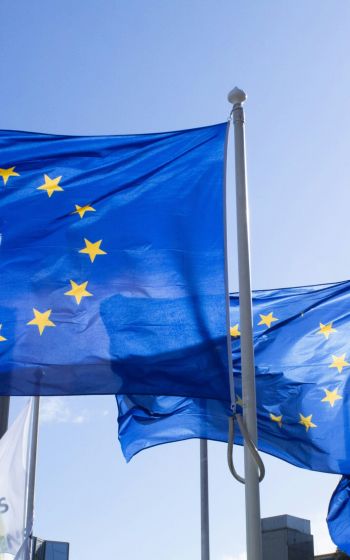No recovery without democracy: rule of law and democratic accountability at the heart of recovery, resilience and reform.
This position paper outlines civil society’s recommendations on several issues within the proposed post-2020 priorities that deserve further reflection from the European Union in order to set out a convincing, definitive and ambitious plan to chart an unambiguous course of action for recovery that also delivers on the political promises of the joint initiative.
The EaP CSF welcomes the release of the Joint Staff Working Document (JSWD), ‘Recovery, resilience and reform: post 2020 Eastern Partnership priorities’ on July 2, 2021. The JSWD is illustrative of the EU’s goals and its commitment to contribute to the reform and recovery of the Eastern Partnership (EaP) region. It details comprehensive targets to deal with the challenges faced by the EaP countries in a great number of fields, while also considering the particularities of each country through dedicated flagship initiatives. However, due to the challenging circumstances brought about by the COVID-19 pandemic, the previously existing social, economic and political problems of the EaP region have worsened, with apparent democratic regression also in play. Consequently, the EaP CSF fears that the JSWD might not meet expectations and lacks balance between supporting economic recovery and democratic development.
By establishing the ‘Top Ten Targets’, the EU has clearly defined its goals for the coming five years, but unfortunately is lacking a clear vision as to how these targets and flagship initiatives will narrow or eventually eliminate the gap between the EU and the EaP region in the future. The EaP CSF also finds that there is no clear correlation between the proposed priorities and the country-specific flagship initiatives, as not all priorities seem to cover the entire region to the same degree. Furthermore, the emphasis on the regionally existing issue of gender mainstreaming is welcome but remains insufficient in its focus on vulnerable groups (disabled, low income, minority, elderly and rural members of society).
This document is omitting details of what system of accountability European stakeholders have set up for the stakeholders involved in the inclusive dialogue and decision-making process. Even though it reinforces the role of the independent civil society organisations (CSOs), there is no proposed solution on their identification and inclusion in the dialogue, implementation and monitoring of the new agenda.
The outcome of the 6th EaP Summit and the resulting implementation mainly depends on a firm commitment by the political leadership of the partner countries, combined with a strong and consistent commitment by the European Commission and EU member states. Together with other non-governmental actors, civil society is crucial for a fully-fledged joint implementation of the agenda and is committed to playing its part.
The EaP CSF is prepared to play a leading role in shaping, implementing and monitoring the JSWD and the outcomes of the EaP Summit, including the “Top Ten Targets”. The EaP CSF will continue to provide expert analysis, input and feedback as the reform processes in the Eastern neighbourhood progress. Being a permanent observer and the only civil society organisation represented consistently at EaP multilateral architecture meetings, we remain committed to the success and coherence of the EaP policy. Our results in the past make us hopeful that we will be considered an equal partner in joint implementation and accountability for the delivery of the new EaP agenda. All stakeholders in this process should approach this new phase of EaP policy with the aim of benefitting citizens, leaving no one behind in this essential transformative process.
Available for download
Position Paper by the EaP CSF on the Joint Staff Working Document on recovery, resilience and reform: post-2020 Eastern Partnership priorities, 20 October 2021.
